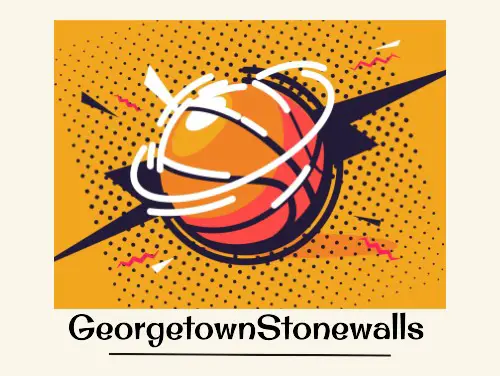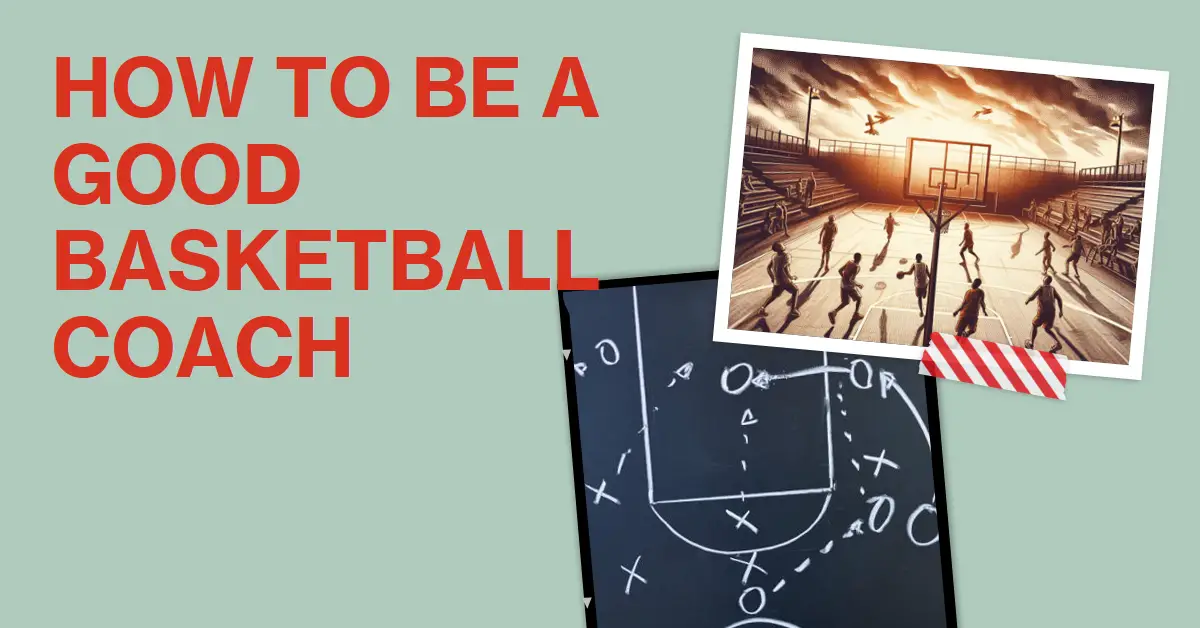To be a good basketball coach, develop effective communication skills and foster a team-centric mindset. Cultivate a deep understanding of the game’s strategies and techniques.
Becoming a skilled basketball coach involves more than just teaching the fundamentals of the sport. It requires the ability to motivate players, create cohesive team dynamics, and adapt to challenges on and off the court. Embracing continuous learning and staying updated with the latest coaching techniques is also crucial.
A coach must balance being an authoritative figure while maintaining approachability to ensure players feel supported and valued. By building trust and promoting a positive, hardworking environment, a coach can inspire athletes to achieve their full potential and contribute to a winning team culture. Successful coaches not only enhance their players’ physical abilities but also their tactical knowledge, sportsmanship, and love for the game.
Introduction To Basketball Coaching
Embarking on the journey of basketball coaching demands not only a profound understanding of the game but also the ability to inspire and shape athletes into a cohesive unit. Good coaches unlock the team’s potential and nurture growth, both on and off the court. Let’s delve into the makings of a notable basketball coach.
Understanding The Role Of A Basketball Coach
The role of a basketball coach stretches far beyond teaching the fundamentals of the game. A coach serves as a mentor, strategist, and counselor. Coaches plan practices, develop game strategies, and provide real-time guidance during games. More importantly, they instill life lessons through sportsmanship and dedication.
- Strategy: Crafting plans for games and practices.
- Development: Building players’ skills and confidence.
- Mentorship: Guiding players to achieve their best.
The Importance Of Leadership In Sports
Leadership in sports is the backbone of successful teams. Good leaders set the tone, create a vision, and lead by example, thus earning respect and trust. This trust translates into performance, as players are more likely to buy into the team’s goals and work together to achieve them.
| Leadership Quality | Impact on the Team |
|---|---|
| Communication | Ensures clarity and understanding. |
| Integrity | Builds trust and respect. |
| Adaptability | Allows effective response to challenges. |
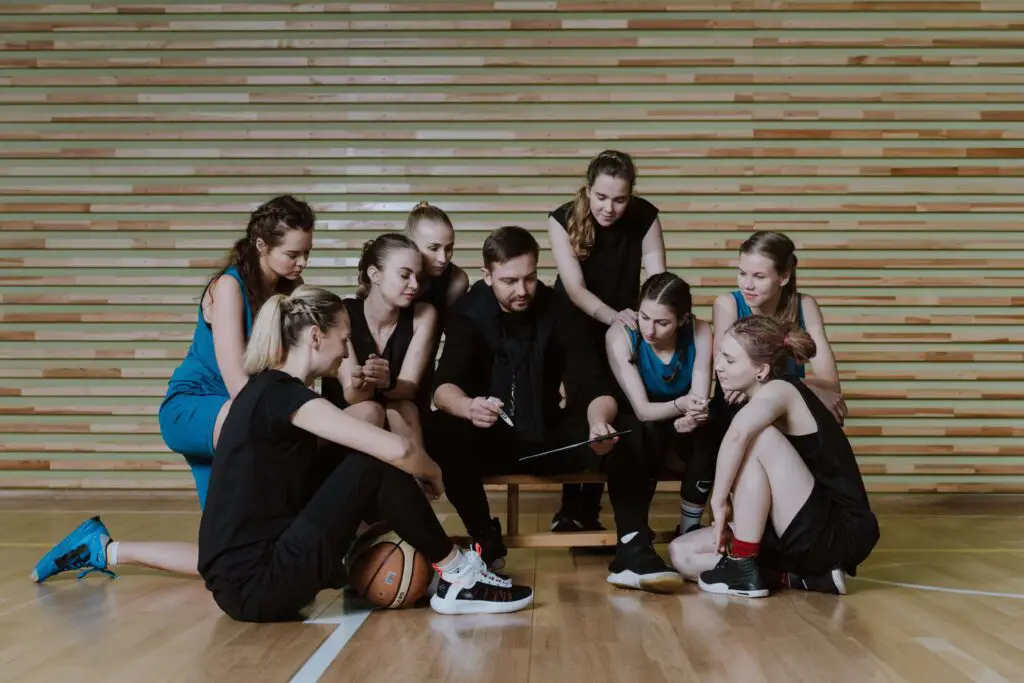
Developing Fundamental Skills
Coaching in basketball is more than teaching players to shoot and dribble. It’s about laying the foundation that players build on for their entire basketball journey. Let’s delve into some critical strategies for developing fundamental skills in your team. A good coach turns each session into a stepping-stone for success on the court.
Mastering The Basics: Drills And Techniques
Mastering the basics is the first essential step. To become adept at basketball, players must learn proper techniques and execute them repeatedly. Practicing drills fosters muscle memory and builds confidence. Here are some drills to include in practice:
- Dribbling Drills: Zigzag courses with cones teach control and agility.
- Shooting Drills: Around the world helps improve accuracy from various spots.
- Passing Drills: Partner passing hones in on precision and timing.
- Defense Drills: Shuffle slides increase quickness and defensive stance.
Stick to these drills regularly. Adjust them to be challenging yet achievable. It ensures consistent progress.
Adapting Training To Player Strengths And Weaknesses
Each player brings a unique set of skills to the court. It’s your job to recognize and harness these abilities while addressing weaknesses. Start by assessing each player’s current skill level. Create individual and team training plans. Here’s a simple approach:
| Player | Strength | Weakness | Custom Drill |
|---|---|---|---|
| John | Speed | Shooting | Fast-break layups with shooting practice |
| Emma | Passing | Defense | Passing drills with defensive maneuvers |
Focus on drills that nurture each player’s strengths. Craft special exercises to improve their weaknesses. This approach leads to a well-rounded squad. A good team shines with individual brilliance and collective teamwork.
Creating A Positive Team Culture
Coaching basketball goes beyond drills and skills. It’s about shaping an environment where players thrive. A positive team culture is the soil that nourishes a team’s growth, unity, and success. As a coach, you can ignite a culture that elevates your team’s spirit and cooperation.
Fostering Team Unity and Communication
Fostering Team Unity And Communication
Unity is the heartbeat of a successful basketball team. Strong bonds lead to seamless plays and unwavering support on the court.
- Start with team-building activities. They break down barriers and foster trust.
- Create an atmosphere where everyone has a voice. Encourage players to speak and listen in turn.
- Set a standard for open and honest communication. It prevents misunderstandings and builds respect.
- Highlight the importance of non-verbal cues. They are crucial on the court where every second counts.
Importance of Discipline and Positive Reinforcement
Importance Of Discipline And Positive Reinforcement
Discipline shapes champions. It’s the framework within which players operate and improve. Combine it with positive reinforcement for a balance of order and encouragement.
| Discipline Aspect | Positive Reinforcement Examples |
|---|---|
| Attendance and punctuality | Player of the week recognition |
| Effort in training | Verbal praise during sessions |
| Adherence to play strategies | Highlighting team successes in games |
Discipline, matched with recognition and rewards, shows players that hard work pays off. They learn that structure doesn’t limit, but frees them to perform better.
Strategic Game Planning
Becoming a good basketball coach means mastering the art of strategic game planning. Coaches must craft a plan tailored to their team’s strengths and weaknesses, while also considering the opponent’s tactics. Let’s dive into the key strategies that can turn a game plan into a playbook for victory.
Analyzing The Opponent: Pre-game Strategies
Understanding your opponent is crucial for success on the court. Here’s how:
- Study past games: Look for patterns in offense and defense.
- Identify key players: Focus on their strengths and how to limit them.
- Scout playing styles: Are they aggressive or do they prefer a slow pace?
- Prepare team matchups: Select optimal player pairings for maximum efficiency.
Implementation of these strategies can give your team an edge even before the game starts.
In-game Adjustments And Decision Making
A solid game plan adapts when unexpected situations arise. Here’s how a coach can pivot:
- Read the court: Spot shifts in momentum or changes in the opponent’s tactics.
- Timeout effectiveness: Use timeouts to re-strategize and calm the team.
- Player substitutions: Keep the lineup fresh and exploit match-up advantages.
- Play calling: Make decisive play changes that utilize your team’s strengths.
Bold moves during a game can lead to a strategic advantage and ultimately, a win.
Player Development And Motivation
Every basketball coach knows the heart of coaching lies in player development and motivation. To build a winning team, each player must reach their full potential. A coach’s role extends beyond drills; it involves nurturing players and sparking the flame that drives them. Let’s explore how to fine-tune coaching for individual growth and motivate your team for success.
Individual Growth: Tailoring Coaching To Player Needs
To foster individual growth, understanding each player’s unique skills and challenges is critical. Customizing coaching methods helps players excel and contribute significantly to the team. This table highlights key points for tailoring coaching:
| Player Assessment | Personalized Goals | Feedback Mechanism |
|---|---|---|
| Evaluate strengths and areas for improvement | Set achievable, player-specific objectives | Provide constructive, regular, and actionable feedback |
Assess players regularly and adapt training to suit their needs. Establish clear, attainable goals. Give feedback that guides them.
- Visual aids can help with understanding complex plays.
- Drills should vary to cater to different skills.
- One-on-one sessions can address specific concerns.
Motivational Techniques To Inspire And Engage Players
Motivation is the fuel that powers players to strive for excellence. A coach’s toolbox should be filled with ways to inspire their team. Inspiration leads to improved performance and a strong team spirit.
- Recognition: Celebrate individual and team achievements publicly.
- Goals: Set clear, exciting targets that challenge players.
- Team Bonding: Cultivate a sense of unity and mutual support.
Include fun activities in training to keep spirits high. Encourage friendly competition through games that promote skill-building. Regularly remind players of their progress. Keep motivation high during tough times with positive reinforcement.
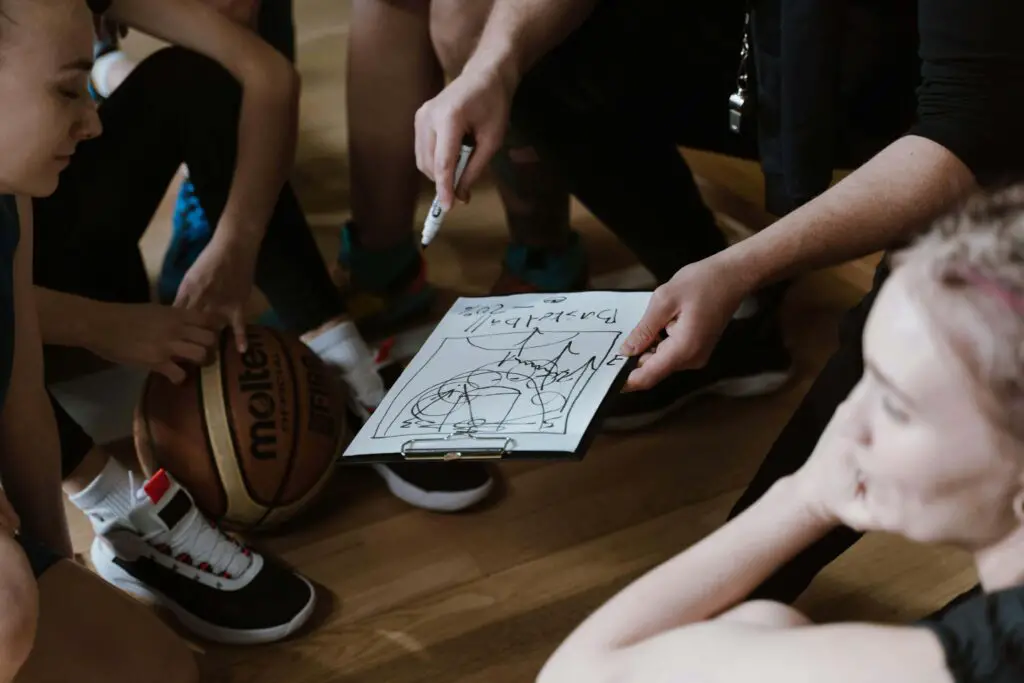
Continuous Learning And Adaptation
Becoming a great basketball coach goes beyond drilling plays. It demands a commitment to ongoing education and evolution.
Staying Updated With The Latest Coaching Trends
The basketball world evolves rapidly. New tactics emerge. Rules change. Players’ playing styles advance. To stay atop the coaching game, keep an eye on these:
- Professional conferences: These events showcase cutting-edge strategies.
- Online forums: Engage with fellow coaches worldwide.
- Workshops: Learn from experiences shared by elite coaches.
- Game footage: Study it to understand the latest plays.
Encouraging Feedback And Self-reflection
Real growth stems from understanding one’s strengths and weaknesses. Develop this through feedback and self-reflection.
Encourage players to voice their thoughts about practices and games. Create an environment where they feel safe to speak up. This will offer insights into areas needing improvement.
| Feedback Source | Action Steps |
|---|---|
| Player Reviews | Address concerns in training sessions. |
| Reflective Journaling | Document and analyze coaching decisions. |
| Peer Assessments | Receive objective advice from fellow coaches. |
Embrace personal feedback. Reflect on your coaching path regularly. Self-assessment guides improvement and skill enhancement.
Practice the open dialogue with your coaching staff. They can spot issues you may miss. Remember: The goal is improvement for all, including you, the coach.
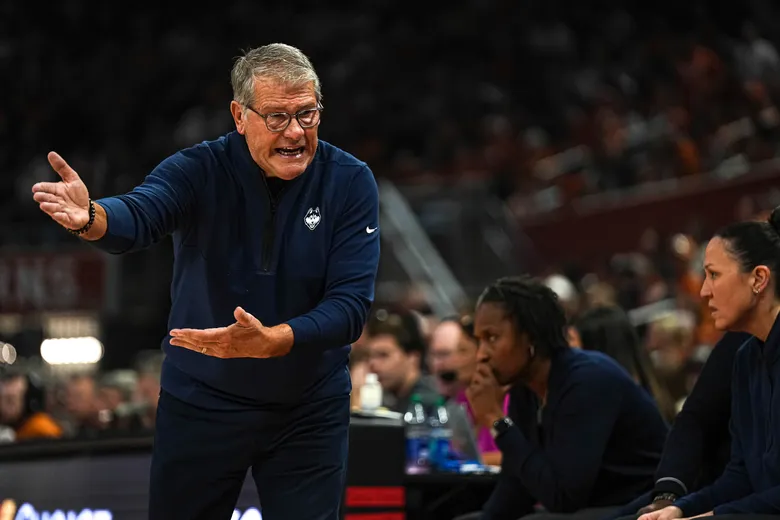
Frequently Asked Questions For How To Be A Good Basketball Coach
How Do You Become A Good Basketball Coach?
To become a good basketball coach, gain a deep understanding of the game, earn relevant coaching certifications, develop strong communication skills, create effective strategies and training plans, and maintain the ability to inspire and motivate players.
How Can I Improve My Basketball Coaching?
Enhance your basketball coaching by pursuing certifications, attending workshops, studying game strategies, mentoring under experienced coaches, and analyzing game footage for continuous skill improvement.
How Can I Be A Better Youth Basketball Coach?
To improve as a youth basketball coach, prioritize skill development, foster a positive team environment, encourage sportsmanship, tailor coaching to individual needs, and continuously educate yourself on coaching strategies.
How Can I Be A Better Game Coach?
To become a better game coach, stay updated on gaming trends, teach strategies effectively, encourage teamwork, analyze gameplay, and cultivate a positive mindset.
Conclusion
Mastering the art of basketball coaching requires dedication, adaptability, and ongoing learning. Remember to communicate clearly, establish respect, and foster teamwork. Keep evolving your strategies and stay passionate. With these tools, you’ll guide your team to success and truly embody the spirit of an exceptional coach.
